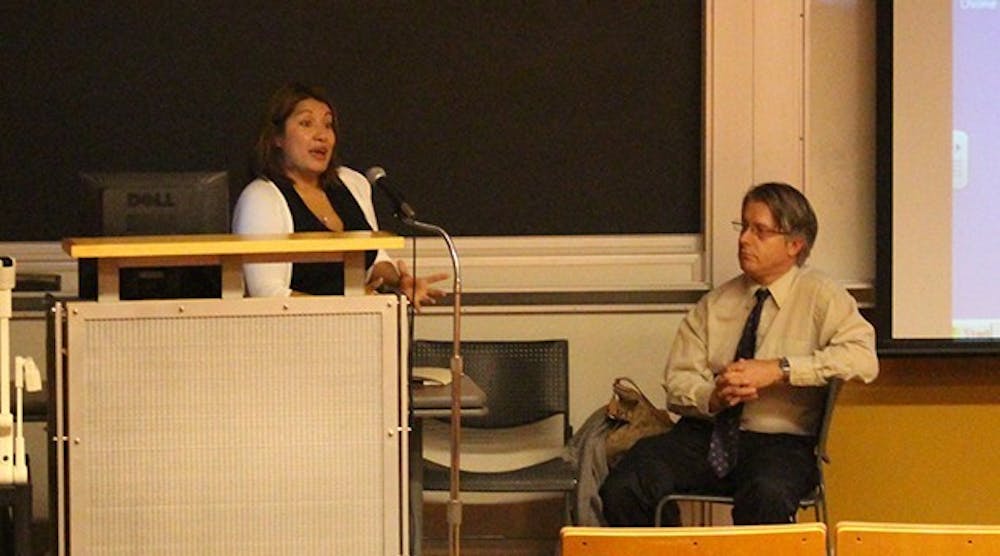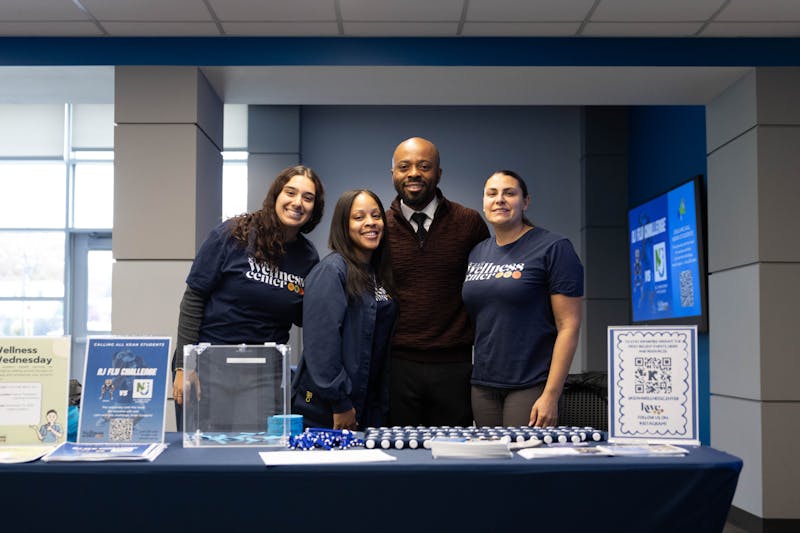Domestic. Violence. Two simple words when separate, but when placed in the same context they can instill a hodgepodge of emotions, thoughts, and reactions. Domestic violence is when one intimate partner carries out deliberate actions of abusive behavior, such as physical or sexual assault, battery, emotional abuse, threats, and/or intimidation, against the other partner. In domestic violence situations, one significant other revels in inflicting power and control as weapons against the other person in the relationship. Silvia Hernandez, executive director of El Centro Hispanoamericano in Plainfield, commented, “in your neighborhood, in my neighborhood, it’s [domestic violence] happening.”
According to Futures Without Violence, 1 in 4 American women are a victim of domestic violence at some point in their lives and 2 out of 3 children are exposed to violence. In an effort to diminish violence in relationships and lessen the numbers in the statistics previously stated, there are organizations worldwide dedicated to the cause. Beginning in 1981, Domestic Violence Awareness Month [DVAM] derived from Day of Unity by National Coalition Against Domestic Violence [NCADV]. The objective of forming DVAM was to form a connection amongst advocates with the same goal: put an end to violence taking place against women and children.
Evolving from one day to one week, each year activities are dedicated to bringing awareness to domestic violence on local, state, and national levels. While DVAM activities are varied, they all fit within one of the common themes:
- Remembrance of those who have passed away due to domestic violence
- Honor the individuals who have endured and survived domestic violence
- Bring together advocates working towards ending domestic violence
Relationships with domestic violence are not cookie cutter and the warning signs and behaviors will vary. Common red flags of domestic violence are:
- A need of control over every aspect of relationship and decisions
- An over-the-top amount of jealousy
- Criticism with the sole purpose of just to put the person down
- Applying pressure to partake in activities the individual wishes not to
For DVAM, the Human Rights Institute of Kean University began the awareness by hosting On the Brink of Death: Violence Against Women and the Abortion Ban in El Salvador on Thursday, October 2. Dr. Larry Ladutke, Amnesty International USA’s El Salvador specialist, and Hernandez were the keynote speakers. There are numerous reasons as to why abusive situations go unreported, one being finances. Ladutke spoke of a woman who did not report her situation due to financial reasons, “If I report him and he goes to jail, who’s going to raise my children?” This woman was concerned about the means of support that goes toward her children being that she did not have a well-paying job. In support of Ladutke’s statement, Hernandez reported, “getting a job is difficult…[it’s difficult] to be independent…” Hernandez continued, “[they’re] always afraid of what is going to happen to their children, family, [and] themselves.”
Hernandez declared a common reason why outsiders witness domestic abuse, ignore it, and it goes unreported is, “Oh, it’s just a husband and wife issue.” If an individual bears witness of domestic violence or notices the red flags, it is advised to report it. How can someone stop being a spectator of domestic violence? Hernandez stated, “being informed is the first step…at times, just being involved.” If domestic violence is suspected, the first step is to talk to the person being victimized. When discussing the situation, remember to push judgment to the side and offer support for the victim’s decisions. Hernandez remarked those in abusive relationships, “…are fighters…but they’re resilient…they only need one little person to help them.”






